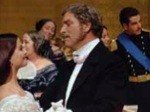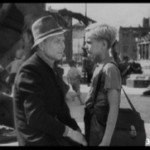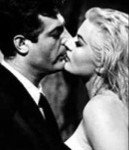A Certain Age: The golden era of Italian cinema in 10 exemplars
There is an old saying which says that we must look to the past to reconstruct the future. The golden years of cinema seem so far away: the years of neorealism, peplum (sword-and-sandals), spaghetti-westerns, thriller and horror, comedies, melodramas, politics; and of the Oscar winners, Cannes Film Festival winners, Cinecittà stars, and the many other internationally known and recognized awards.
The Italian film industry, which has seen and lived through highs (too few) and lows (too many) in the last three decades, must now look to the golden years of the industry during the economic boom: the Second World War, the 1960s and 1970s, the films and styles of writers from Antonioni to Rossellini, Fellini to Visconti, of craftsmen from Bava to Margheriti; an industry capable of producing refined masterpieces and luscious films of pure entertainment, a cinematic world rich in ideas and ambition. To imagine this better future, let us look to the past at ten memorable Italian and world films.
01. La Dolce Vita (1960), directed by Federico Fellini
When Hollywood came to the banks of the Tiber River, all eyes turned to Rome as the Oscar Awards crossed the Atlantic and spectators around the world anxiously awaited the works of Rossellini, DeSica, Visconti, and Fellini. Those were the years in which Italian cinema seemed to shine with an eternally bright light, much like Trevi Fountain in Federico Fellini’s masterpiece La Dolce Vita (1960): Anita Ekberg, the Scandinavian blonde, perfectly paired with the sly charm of Marcello Mastroianni in one of the most famous and seductive storylines in the history of film.
02. Il Gattopardo (1963) directed by Luchino Visconti
Adeptly taken from the romantic novel given to us by Giuseppe Tomasi, of Lampedusa, Luchino Visconti skillfully combined the elegance of Visconti, the charisma of Burt Lancaster (as the Prince of Salina), and the freshness of Claudia Cardinale (as Angelica Sedara), in depicting the historical political inaction of Italy. Wonderfully embellished by the music of Nino Rota, this film won the Golden Palm award at the Cannes Film Festival in 1963. The film also starred Alain Delon (as Tancredi Falconeri), at the time a budding young French star.
03. Germania anno zero (1948) directed by Roberto Rossellini
The most inspiring works of neorealism recorded, in real time, the drama and aftermath of war, and the laborious reconstruction of the years following. In his Trilogy of War, Roberto Rossellini photographed the misery and hope of a new generation, bringing it to life in Germania Anno Zero (Germany, Year Zero) (1948) and focusing on the tragic story of 13-year-old Edmund Meschke in a semi-destroyed, ghastly and distressed Berlin.
04. La Ciociara (1960) directed by Vittorio De Sica
As Vittorio De Sica takes to the big screen with La Ciociara (Two Women) (1960), a novel by Alberto Moravia and adapted by screenwriter and neorealism theorist Cesare Zavattini, it is not the story that is unforgettable; rather, it is the outstanding performance by the diva Sophia Loren which remains impressed in the heart of the general public. Loren, for her role as the courageous Cesira, received both an award at the Cannes Film Festival and the Oscar for Best Actor in 1962, six years after Anna Magnani. The film also starred Jean-Paul Belmondo.
05. Accattone (1961) directed by Pier Paolo Pasolini
Situating himself for the first time behind the camera, Pier Paolo Pasolini, a poet and writer, masterfully gives us an extraordinary portrait of the suburbs of Rome known as the ghetto, the poorest and most disadvantaged in the Italian capital city. Far from poetic neorealism and the dynamics of industrialized cinema, Pasolini manages to make a distinct impression on the viewer of the everyday life in this area. A stunning performance by a young Franco Citti (as Vittorio “Accattone” Cataldi), manages to show both sides of this dynamic vision, with his portrayal of sincerity shining through a worn and lined face.
06. Io la conoscevo bene (1965) directed by Antonio Pietrangeli
Too often underestimated by critics and film history tomes, Antonio Pietrangeli was one of the most talented of the Bel Paese (Beautiful Country). Before his unfortunate premature death, he gave us Io la Conoscevo Bene (I Knew Her Well) (1965), a story the young and beautiful Adriana (Stefania Sandrelli) who struggles, and succeeds, in keeping hope alive while surrounded by cynical exploiters during Italy’s economic boom. A bittersweet, but bright, cinematic masterpiece, the film also stars Nino Manfredi, Ugo Tognazzi and Enrico Maria Salerno.
07. C’era una volta il West (1968) directed by Sergio Leone
Sergio Leone, of Rome, tells the epic story of the twilight of the American West, pushing to the forefront Monument Valley as used in many films of John Ford: we know it as the happy season of the spaghetti-western, twirling among the miracle of Italian creativeness and production. C’era una Volta il West (Once Upon a Time in the West) (1968) is an ambitious, flowing and monumental film with a cast of the greatest magnitude: Henry Fonda, Charles Bronson, Claudia Cardinale and Jason Robards. Cinematography by Tonino Delli Colli combines with a memorable soundtrack by Ennio Morricone.
08. La classe operaia va in Paradiso (1971) directed by Elio Petri
The Working Class Goes to Heaven (1971) is a superb masterpiece involving the years of protest, of labor struggles, of class conflicts. D irector Elio Petri, along with screenwriters Ugo Pirro and Gian Maria Volonte, deftly crosses the lines by dragging the viewer inside the factory and in front of the assembly line, allowing us to feel its strange and alien rhythms. Petri has won numerous international awards from Cannes and the Oscars, including one the year prior for Indagine su un cittadino al di sopra di ogni sospetto (Investigation of a Citizen Above Suspicion).
09. Profondo rosso (1975) directed by Dario Argento
Long after the time of the westerns of Leone, Sollima and Corbucci, films of a new genre began to find a life and place in Italy. With the thriller/horror film Profondo Rosso (Deep Red) (1975), Dario Argento succeeded in pushing the boundaries and getting closer and closer to horrific influences and suggestions. Through the use of a skillfully-designed sound track from the progressive rock group Goblin, we follow the descent of the film’s hero, a musician named Marcus Daly (David Hemmings). Not until long after do we realize both the film and music have become etched into the nightmares of generations of viewers.
10. Amici miei (1975) directed by Mario Monicelli
A film which manages to be lighthearted and fun, Mario Monicelli has taken the ideas of Pietro Germi, poured in a healthy dose of jokes and tricks, sprinkled it on top with laughter and nostalgia, and presented us with one of the most significant Italian comedies that we will be hard-pressed to see again. Set in Florence during the 1960s and 1970s, Amici Miei (My Friends) (1975), this story of a group of friends in their fifties is masterfully brought to life by a generation of extraordinarily talented actors such as Ugo Tognazzi, Philippe Noiret and Adolfo Celi. Also in the cast are Moschin Gaston, Duilio Del Prete, Milena Vukotic and Bernard Blier.
About the Author
Laureato in Storia e Critica del Cinema, collabora con diverse riviste cartacee e online. Nel 2008 ha fondato la rivista CineClandestino.it, di cui è direttore editoriale. Membro dell’Asian Film Festival dal 2006 al 2008. Ha curato le rassegne e i volumi
Nihon Eiga – Storia del Cinema Giapponese dal 1970 al 2010 e Nihon Eiga – Storia del Cinema Giapponese dal 1945 al 1969. Ha pubblicato anche Satoshi Kon – Il cinema attraverso lo specchio.





